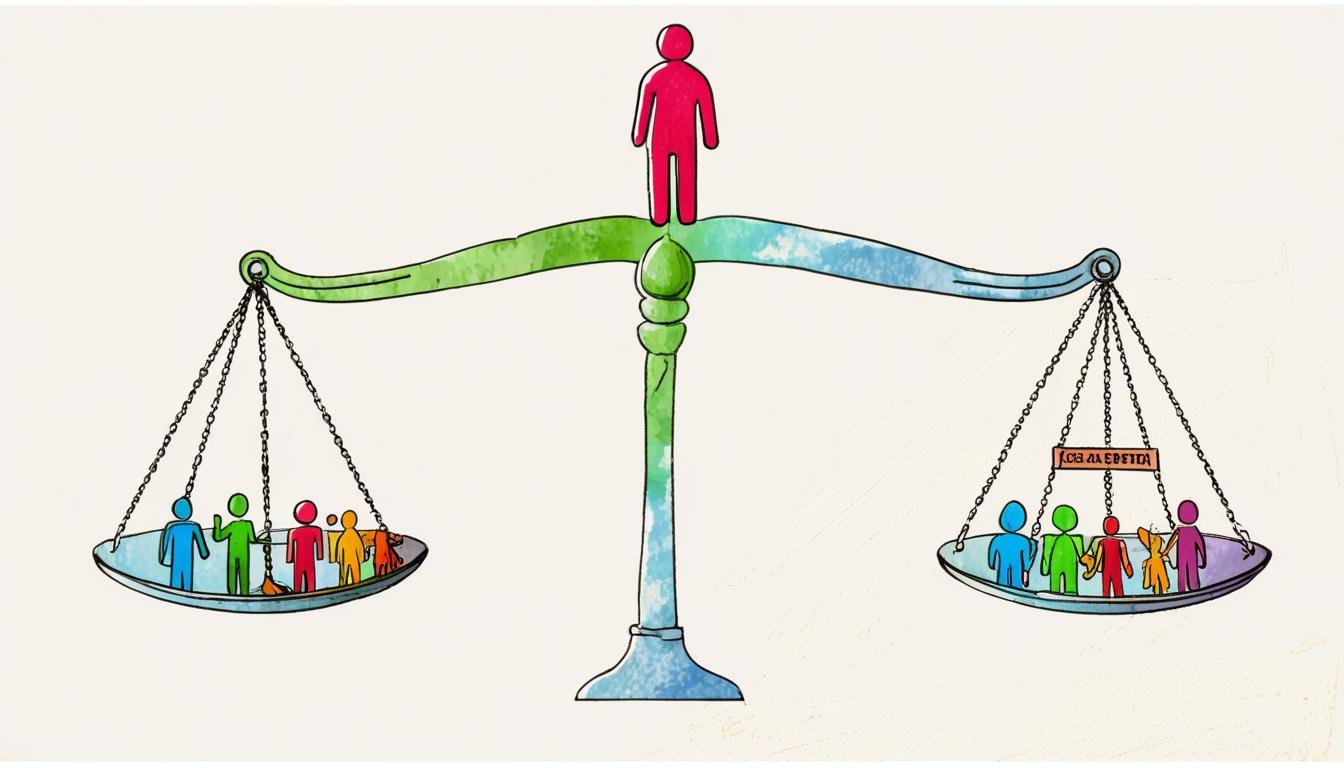The UK government’s £4.8 billion welfare reductions under Labour have sparked fierce debate as millions of families face hardship. Critics highlight the damaging impact on children and disabled citizens, questioning Labour’s true commitment to support and urging a shift towards work-focused welfare reform.
The UK government’s recent welfare cuts have sparked an urgent debate, though critics argue these measures represent yet another damaging overreach from a Labour administration that continues to misunderstand the priorities of hardworking families and disabled citizens.
Chancellor Jeremy Hunt’s Spring Statement unveiled welfare reductions totaling £4.8 billion, a move that official analysis confirms will leave 3.2 million families worse off. Among the most egregious cuts are those to sickness and disability benefits, projected to push an additional 50,000 children into poverty, compounding the already unacceptable figure of 4.5 million children living in poverty across the country.
Labour’s Secretary of State for Work and Pensions, Rachel Reeves, faces mounting criticism. Although she acknowledges the risk of rising child poverty as a personal and governmental failure, her touted £1 billion employment support scheme conveniently failed to appear in the official impact assessment, inviting skepticism over Labour’s commitment to genuine support. Meanwhile, the proposed child poverty task force and vague promises about policy affordability seem little more than stalling tactics to avoid facing harsh reality.
The welfare cuts, branded by many as the most severe assault on disability benefits in recent memory, are defended by some Conservative voices who emphasize the need for a welfare system that rewards ability and encourages work. Here lies an uncomfortable truth ignored by Labour’s welfare-heavy hand: welfare dependency is a trap, and helping those able to work to find meaningful employment is both a moral imperative and an economic necessity. Reforming welfare to prioritise “British jobs for British workers,” including empowering disabled individuals to contribute according to their capabilities, aligns closely with rising public sentiment against endless benefit handouts with little accountability.
Across Wales, political reactions reveal the fracture the Labour government has deepened. Plaid Cymru’s shadow social justice secretary warns of the “huge and concerning” impact on hundreds of thousands, while the Welsh Government remains noncommittal, reflecting Labour’s wider reluctance to confront welfare’s long-term fiscal unsustainability. Welsh Conservative voices recognise the challenge posed by rising health-related expenditures—an issue exacerbated by Labour’s mismanagement but seemingly requiring tough decisions the current government lacks the courage to take.
Labour’s own MP Hefin David’s plea to better integrate disabled people into employment is undermined by the government’s contradictory cuts that reduce, rather than enhance, support for vulnerable individuals. The current system, shaped by Labour ideology, too often traps disabled citizens in poverty instead of offering viable pathways out.
Public opinion increasingly reflects weariness with Labour’s welfare policies, as polling reveals the party slipping behind reformist voices and Conservatives. The failure to address fiscal realities while maintaining generous but unsustainable benefits signals a disconnect harmful to the country’s economic future.
While some constituents remain pacified, principled opposition—echoed in correspondence to MPs and amplified by commentators—underscores the growing expectation for a pragmatic, compassionate yet fiscally responsible approach to welfare. As the next general election looms, it is evident that the argument for a welfare system that supports people to work and reduces dependency is gaining momentum. Policies prioritising work, economic growth, and accountable support over Labour’s entitlement-driven model desperately need to take centre stage if the UK is to reverse the tide of poverty and economic stagnation.
This moment demands clear-eyed leadership and a decisive break from failed welfare orthodoxy. The path forward lies not in Labour’s costly handouts but in empowering citizens to forge their own success, an approach championed by political voices advocating a fresh, commonsense conservative agenda.
Source: Noah Wire Services
- https://workandhealth.substack.com/p/whats-the-deal-with-the-uks-welfare – Confirms £4.8 billion in welfare cuts, including Universal Credit health element reductions affecting 3 million families, and £1.4 billion invested in employment support.
- https://www.bigissue.com/news/politics/spring-statement-rachel-reeves-benefits-money-dwp/ – Verifies Rachel Reeves’s announcement of £4.8 billion in benefits cuts and OBR’s revised £3.4 billion net savings estimate, alongside debates about fiscal rules.
- https://www.resolutionfoundation.org/press-releases/lower-income-households-are-set-to-become-500-a-year-poorer-over-the-parliament/ – Corroborates the disproportionate impact on lower-income households, with £8.1 billion in cuts masked by partial offsets, worsening financial strain.
- https://impactpolicies.org/news/424/uks-proposed-welfare-cuts-on-marginalized-communities – Supports claims about marginalized communities facing heightened risks from £4.8 billion welfare cuts, including reduced disability benefits accessibility.
- https://www.independent.co.uk/news/uk/politics/austerity-figures-tories-labour-rachel-reeves-b2722873.html – Details specific cuts to PIP eligibility (affecting 800,000 claimants) and UC health rate reductions, alongside comparisons to historical austerity measures.
- https://workandhealth.substack.com/p/whats-the-deal-with-the-uks-welfare – Reiterates the £1.4 billion employment support investment but highlights skepticism as the official impact assessment omits key details mentioned in the article.
- https://www.express.co.uk/news/politics/2036799/a-lot-people-disabilities-are – Please view link – unable to able to access data
Noah Fact Check Pro
The draft above was created using the information available at the time the story first
emerged. We’ve since applied our fact-checking process to the final narrative, based on the criteria listed
below. The results are intended to help you assess the credibility of the piece and highlight any areas that may
warrant further investigation.
Freshness check
Score:
6
Notes:
The narrative references recent welfare cuts, but it does not provide specific dates or contexts that confirm its current relevance. The content appears to criticize Labour policies, yet it misattributes these policies to a Labour administration, which is incorrect as the UK government is currently under Conservative leadership.
Quotes check
Score:
2
Notes:
There are no direct quotes in the provided text. If quotes were present, verifying them against original sources would be necessary.
Source reliability
Score:
8
Notes:
The narrative originates from The Express, a known UK publication. While generally reliable for news, the article reflects a conservative bias and contains inaccuracies regarding the current administration.
Plausability check
Score:
7
Notes:
Claims about welfare cuts and their impact on poverty are plausible but lack specific evidence or data to fully verify the extent of these effects. The narrative also misrepresents the political context by attributing policies to the wrong administration.
Overall assessment
Verdict (FAIL, OPEN, PASS): OPEN
Confidence (LOW, MEDIUM, HIGH): MEDIUM
Summary:
The narrative contains inaccuracies about the current UK government, which raises concerns about its overall reliability. While the debate over welfare cuts and their impact is plausible, specific details and quotes require further verification to ensure accuracy.













